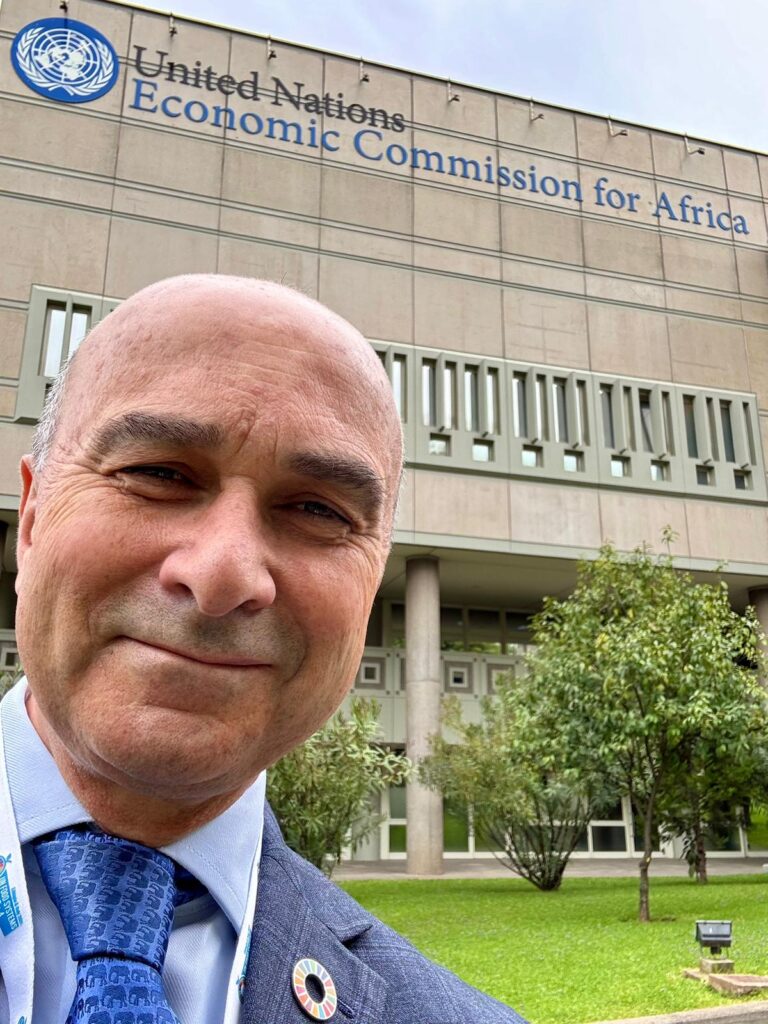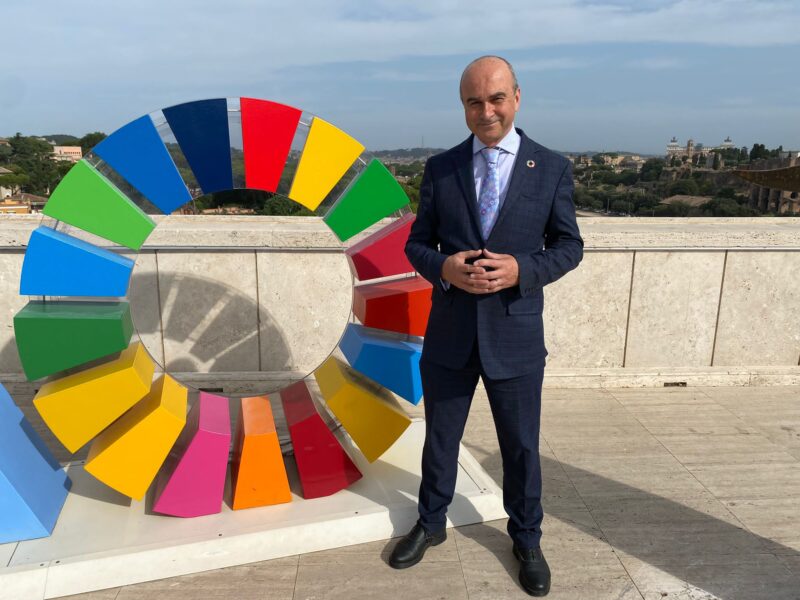
FROM LIVE AID TO FOOD AID: A JOURNEY OF COMPASSION AND CHANGE
What Ethiopia Taught Me About Food, Hope and Humanity
What has been your summer highlight this year? Beach trips with the kids, a getaway somewhere exotic, or gorgeous evenings with a glass of something cool? Mine was the unexpected serendipity of reliving Live Aid – just days before my first-ever visit to Ethiopia.
At the height of the Ethiopian crisis in 1985, the vision and belief of Live Aid founders, Bob Geldof and Midge Ure, saw to it that more than a hundred million pounds was raised for famine relief. Held simultaneously in London and Philadelphia and beamed around the world, the line-up of stars was incredible. Anyone who watched will have their own take on who stood out. For me, it was the passionate power of U2 and Simple Minds, and that set by Queen, since voted greatest rock gig of all time.
Geldof later reflected that, through the common language of rock n roll, “we were able to address the intellectual absurdity and the moral repulsion of people dying of want in a world of surplus”.
And absurdity it was.
Ex-dairy farmer and founder of Compassion in World Farming drew attention to the cruel absurdity of ‘Fat Cattle and Hungry Children’. Back then, at the height of the famine, he wrote about how the UK imported feedstuffs from Ethiopia to feed its cattle whilst Ethiopian children starved.
A Legacy of Compassion
It’s hard to believe that forty years have passed since that terrible famine and the outpouring of compassion galvanised by Live Aid.

Forty years later and world leaders gathered in those very same hills where hunger once echoed, not to mourn the past, but to reimagine the future. The UN Food Systems Summit in Ethiopia’s capital, Addis Ababa, was no ordinary conference – it was a reckoning with history and a rallying cry for transformation.
For a week in July, Addis Ababa became the global centre of action on food. Over 3,500 people took part in the Summit, including nearly 150 national governments.
In vast halls where translation booths hummed and delegates from every continent leant into microphones, the message was clear: food is not just sustenance, it is survival, sovereignty and solidarity.
Three Principles for Change
For my part at the Summit, I was keen to share three key messages – North Star principles – for a food future that nourishes both people and planet whilst protecting animals.
The first of these was that food systems should be about feeding people first, meaning that we need to reorient away from industrial animal agriculture where vast quantities of crops, instead of meeting human need, are used as feedstuff.
Sadly, the absurdity of using perfectly good crops as animal feed, called out by Peter Roberts all that time ago, still remains the norm.
Instead of feeding people, perfectly good crops are diverted into feed troughs on industrial farms. This ‘ghost food waste’ is just as lost as if tossed in the bin. In this way, while 700 million people still go to bed hungry, we squander enough food to feed billions.
My second key message in Addis was the imperative to stay ‘within planetary boundaries’, recognising that food must no longer be a driver of climate collapse or biodiversity loss. Our food is responsible for 30 per cent of the world’s greenhouse gas emissions. Switching to climate and nature-friendly farming would go a long way to resolving things.
And thirdly, I spoke about the importance of adopting ‘One Health’ in our food systems, recognising that the health and welfare of people, animals and the environment are inseparable. If we keep animals in harmful conditions on farms, they get sick. They produce poor quality food. They cause pollution. They risk causing the next pandemic. Better conditions mean healthier animals, higher quality food and a protected environment.
These principles are not abstract ideals – they are the scaffolding for a food system that can heal rather than harm.
Inspirational
In her closing remarks, UN Deputy Secretary-General, Amina Mohammed, spoke of transforming food systems in alignment with “health, agriculture, climate, biodiversity and economic objectives”, echoing that interdependence captured in the principle of One Health.
It is easy to think that hunger and the need to reform food systems is a distant issue in far-away countries. Yet, demand for emergency food banks in Scotland, for example, has risen sharply in recent years. Anti-poverty charity, The Trussell Trust, distributed over 230,000 food parcels in the last year alone. Similarly, farming practices in Britain and Europe – poor animal welfare and polluting mega-farms – are on the increase.
“Our movement has shown what is possible when we work together”, DSG Mohammed said when closing the Summit. More than 160 countries have begun to reflect the critical role of food and agriculture in reducing greenhouse gas (GHG) emissions. They have instigated school meal programmes to support child nutrition. Hunger has started to decline. We must now “build on what has been accomplished and continue to work together for peace” and a better future for all.
From the music-fuelled compassion of Live Aid to the policy-driven momentum of the UN Food Systems Summit, the journey from crisis to change is far from over. Food remains central to the challenges we face – and the solutions we need. The task now is to turn global goodwill into lasting reform – so that what we eat not only sustains us, but helps build a healthier, fairer and more humane world.
Note: This is a version of an article that was first published in The Scotsman on Friday 22nd August, 2025.
Main Image: A post box topper created to celebrate the 40th anniversary of Live Aid | Credit Philip Lymbery





